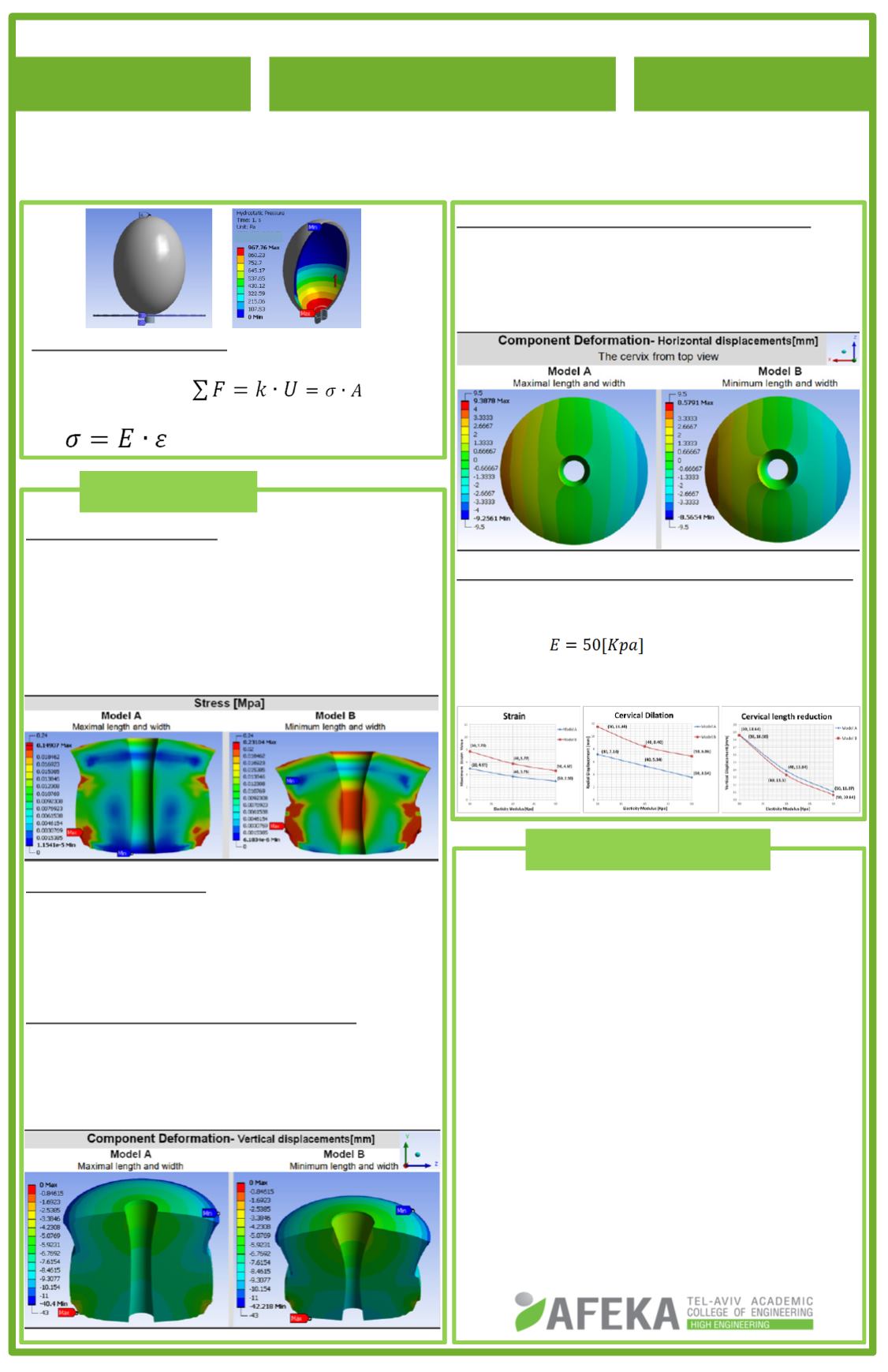

As the cervix’s length and width are
smaller, the stresses exerted on it are
greater, and vice versa.
Strain levels evolving in the cervix are
higher as the cervix’s dimensions and
elasticity modulus become smaller,
leading to a greater cervical distortion.
Signs of funneling causing cervical
dilation are increasing with decreasing
cervical length, right along with the risk of
preterm delivery.
The reduction in cervical length and the
extent of cervical dilation, are more
substantial as the elasticity modulus
becomes smaller, leading to significantly
increased risk of preterm delivery.
Student name:
Meital Bistri
Advisor name: Dr.
Zoya Gordon
2015
---
2
Department: Medical Engineering
Analysis of the stresses evolving in
cervix during pregnancy
Governing Equations:
The static dynamic equation at steady
state condition:
The constitutive equation of the material:
Distribution of stress:
Higher stresses evolving in model B (with
the smaller dimensions), than in model A.
The maximal stress received for model B
is 0.23 [Mpa] compared to 0.15 [Mpa] for
model A, suggesting a significant
difference of nearly 35% between the two.
Distribution of strain:
The maximal strain received for model B is
4.62 compared to 2.98 for model A,
indicating a difference of 35.5% between
the two models.
Deformation- vertical displacements:
The entire cervix is compressed and
shortened from the top down.
Cervical length is reduced by 11.07 and
10.64mm in model A and B, respectively.
4. Results
Deformation- horizontal displacements:
Funneling is seen in the upper part of the
cervical canal, causing a dilation.
The dilation achieved in model B is
48.4% greater than in model A.
The effect of various mechanical properties:
Comparison was made between the
normal elasticity modulus of the cervical
tissue ( ), and two smaller
values, which represent the
incompetence cervix.
5. Conclusions

















